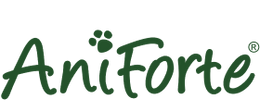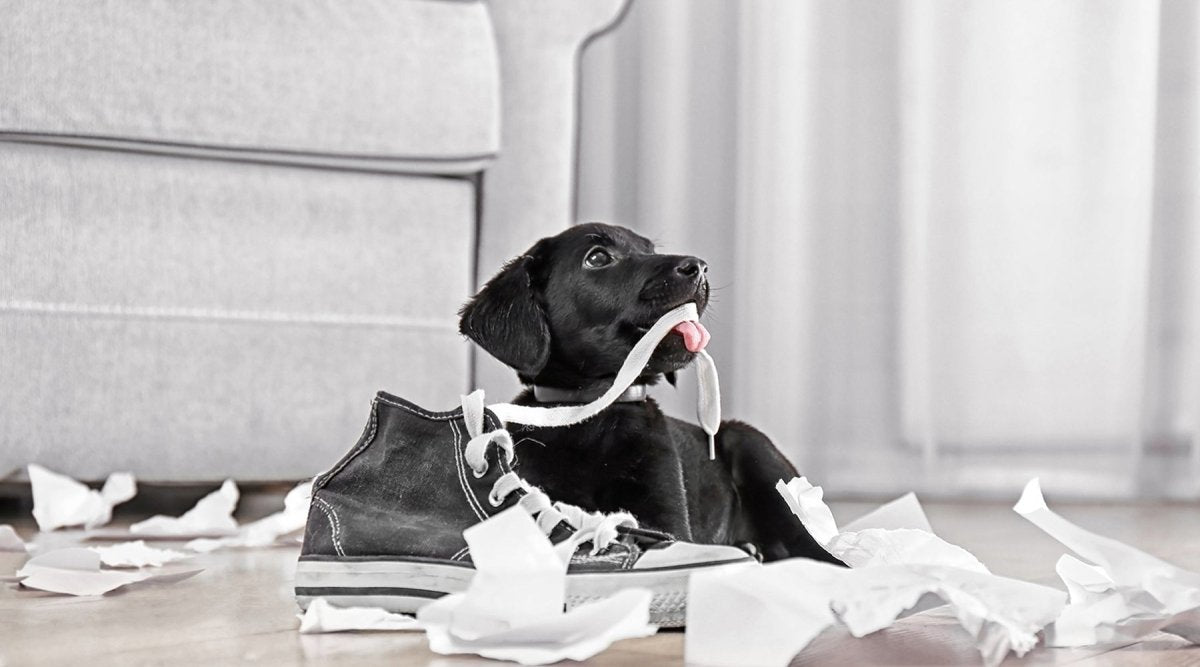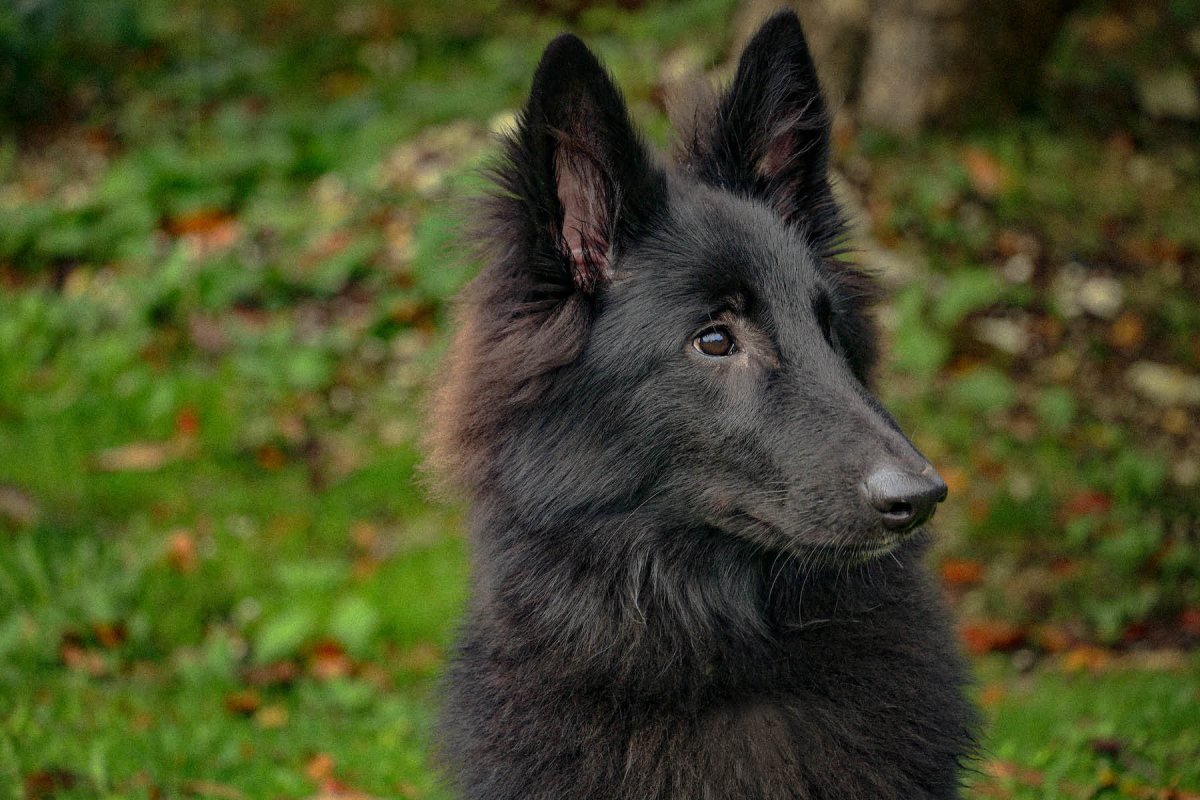External signs of an old dog
It is impossible to say in general terms when a dog is old. The following also applies to dogs: a dog is as old as it feels or behaves. Generally speaking, dogs over the age of 7 or 8 are classed as senior citizens, even if they are far from behaving like this. It is not uncommon for dog owners to report that their supposed senior dog is still lively and in great shape. However, ageing depends on the breed and size of the dog. Larger dogs age faster than smaller dogs, but scientists are not yet sure what the reason for this is.
Even if the dog's behavior says nothing about its true age, you can still discover the odd grey hair in its coat. The older the dog, the more advanced the signs of age. The coat no longer has such an intense color, the shine diminishes and the stature of an old dog no longer looks so handsome and muscular.
External signs of a senior dog are
- White-grey coat, especially around the muzzle and ears
- The color intensity and coat shine decrease
- The dog's muscles are no longer as pronounced
- The shedding process takes much longer
You may also have noticed that your senior dog is shedding more and that shedding lasts much longer than before. This is because the metabolism of old dogs works more slowly and nutrients are therefore absorbed and processed more slowly. High-quality natural nutrients can be broken down better and the dog's body needs less energy to process them.
Nutrients such as brewer's yeast and various oils are essential to support your senior dog's coat change. While brewer's yeast provides the dog's coat with important B vitamins and stimulates the skin and coat metabolism, oils such as coconut oil for dogs or salmon oil for dogs ensure a shiny and elastic coat. In addition, the ingredients stimulate the immune system of old dogs and thus support their health.
Senior dog - behavior of old dogs
But it's not just the appearance of our dogs that changes as they get older. Just like us humans, dogs sometimes develop a different behavior. They become more sluggish as their metabolism is no longer as active and produces less energy, they sleep much longer and have less stamina. In general, senior dogs move less. They withdraw more often and seek peace and quiet.
Cognitive abilities also change, the old dog reacts more slowly and the odd command is often ignored. Memory, learning ability and attention are also not spared and decline. Your old dog needs more time for many things. Activities that used to make him happy are no longer very appealing. It can also happen that your pet barks more often or even develops separation anxiety. This is part of the process of a dog getting older.
Of course, not all behavioral changes have to occur in your dog. The symptoms of ageing depend on the individual dog's character, lifestyle and, of course, its breed and disposition.
Behavioral changes in old dogs that should cause concern are sudden changes: from one day to the next, the dog no longer wants to go for a walk, seems tired and exhausted or even refuses to eat. An increase in aggression towards other animals and people as well as increased uncleanliness in the house should also be observed more closely and discussed with the vet or veterinary practitioner. These may be the first signs of canine cognitive dysfunction syndrome (CCD). This is a disease of the brain and nervous system that is similar to Alzheimer's disease in humans.
Symptoms of Canine Cognitive Dysfunction Syndrome (CCD):
Disorientation: the dog stares into space, forgets where it actually wanted to go and no longer recognizes people it knows. It appears confused and aimless.
Decrease in social interactions: The old dog has little interest in physical closeness: Petting and affection are increasingly ignored. Greeting owners or other familiar people is much less joyful than it used to be. Mood swings also increase.
Changed sleep-wake rhythm: The dog's sleep phase lasts significantly longer. However, the sleep phase shifts and the senior dog sleeps less soundly at night and seems restless.
Change in activity - aimless wandering: Old dog is constantly wandering around; aimless wandering and less interest in the environment are also symptoms of CCD.
House-training: If the dog was previously house-trained, it may do its business in the house and forget to house-train.
Dog diseases in old age - treating senior dogs correctly
In addition to CCD, four-legged friends can also suffer from numerous other diseases in old age. For example, joint problems are very common in old dogs. They are usually due to age-related wear and tear. In particular, the cartilage mass and synovia (synovial fluid) decrease, causing friction between the individual joints and leading to osteoarthritis - similar to humans. You should therefore start thinking about the right care for your dog at an early age. Even at an early age, you can slow down or even prevent the progression of the disease with the right nutrients for the joints. Green-lipped mussel powder for dogs and pure fish collagen are essential in the diet and can simply be added to the food.
Another organ that often shows symptoms in dogs as they get older is the heart. It is no longer as fit as it used to be and various heart diseases also restrict the health of our senior dogs. Heart valve disease is a typical disease in dogs as they get older: the mitral valves no longer close properly and the blood backs up into the lungs. Cardiac coughing, accompanied by choking, is the first symptom of this disease.
Taurine for dogs can be administered to strengthen the heart. Although dogs can produce this amino acid themselves, initial research shows that heart disease, especially cardiac insufficiency, can be linked to a taurine deficiency. Taurine is also required for reproductive performance and the retina.
Senior dogs - impairments and dog diseases in old age
- Arthritis and arthrosis
- Mitral valve endocardiosis - disease of the heart valves
- Gingivitis, periodontitis and stomatitis - diseases of the oral cavity
- Cataracts, eyelid margin tumors - eye diseases in old dogs
- A more sensitive bladder and even incontinence
- Impairment of various organ functions
- Decrease in kidney and liver function
- Poorer hearing
Nourishing and properly supporting old dogs
Senior dogs need more attention, time and more sensitive handling from their owners. Owners need to adapt to the old dog and also largely accept the new habits. Some days can even be very challenging with an old and perhaps sick dog. However, you shouldn't make the mistake of not challenging the dog at all. After all, walks and mental stimulation support the development of old dogs and can even lead to a "second spring".
Shorter and more frequent walks
Depending on the dog's physical condition, walks are still part of the dog's daily routine. Long walks lasting several hours should be reduced and the odd jog should be omitted, but you can incorporate several shorter walks a day. Fresh air and exercise are also very important for old dogs. Walking can stimulate the dog's interest and stimulate the metabolism and muscles.
Encourage the dog mentally
Even if your pet is already an older dog, you should still encourage him mentally. Learning new tricks or refreshing old ones stimulates his nervous system and brain activity. Especially if he ignores familiar commands and becomes a little stubborn, you can teach him the commands again with a few exercises. It is best to combine your commands with a visual cue and a click or snap of the fingers.
You can also incorporate small play sessions into your senior's daily routine; search and retrieve games arouse joy and curiosity and provide additional motivation for your four-legged friend.
Regular check-ups
Check-ups at the vet or veterinary practitioner should be carried out more frequently for senior dogs. An annual check-up with a complete blood count and urine test is recommended. This makes it easier to keep an eye on the organs and react to possible changes at an early stage. Unfortunately, our four-legged friends cannot tell us when something is wrong. As pet owners, we should therefore have our senior dog examined and checked more closely.
A healthy diet with high-quality nutrients
The diet of old dogs is an important pillar in the care and health maintenance of the four-legged friend. Due to their reduced activity level, their food should not be too high in fat, and energy-rich carbohydrates should also be reduced. The senior dog's food should be adapted to its activity, weight and state of health. Easily digestible nutrients, an optimal supply of vitamins and minerals as well as functional supplements should be included in the senior's food or can be fed additionally. Especially in sensitive phases of life, malnutrition or illness, food supplements support the old dog.
Supplements that your old dog needs
All-round care
Senior Active: This purely natural supplement is based on selected ingredients that specifically meet the requirements of old dogs. While ginkgo leaves support memory function, hawthorn leaves have a positive effect on the heart function of senior dogs. Other ingredients also promote the vitality and agility of old dogs and provide them with important nutrients that are essential in old age.
For the immune system
Immune-Active: The purely natural ingredients are tailored to the needs of immunocompromised animals. The combination of spirulina, barley gas and rosehip supports the immune system and is a valuable supplement, especially for old dogs.
Propolis powder: Propolis is produced by bees to ward off germs and is considered an old household remedy for strengthening the immune system. The natural bee product also contributes to healthy skin.
Premium Colostrum: Gently dried colostrum powder is obtained from the milk of the first day and contains the antibodies immunoglobulin G. The important nutrients strengthen the immune system and the gastrointestinal tract.
For the joints
Green-lipped mussel powder or green-lipped mussel capsules: Natural green-lipped mussel powder for dogs and cats is used for joint complaints and to support mobility and synovial fluid. It contains valuable glycosaminoglycans, which occur naturally in the synovial fluid.
CollaMove® - Collagen for dogs: Derived from sea fish, this high-quality product is mainly used to combat problems when standing up and walking up and down stairs. It stimulates the formation of collagen in the joints and promotes the dog's agility.
Rosehip powder: It contains natural vitamin C and galactolipids, which have a positive effect on the joints. The combination with green-lipped mussel powder is recommended. As an added bonus, rosehips strengthen your old dog's immune system and blood circulation.
For teeth, eyes and ears
Denta Clean & Care Powder: The natural dental care mixture supports your senior dog with daily dental care all by itself. The supplementary food improves oral hygiene and reduces plaque and tartar build-up as well as bad breath.
Gentle eye care: The high-quality eye care also cleans sensitive eyes in a particularly mild and gentle way. Dirt and incrustations are dissolved with the traditional medicinal herb eyebright.
Camomile ear cleaner: Mild camomile cleans the sensitive ears of dogs and cats and relieves itching. A simple treatment for ear mites too.



